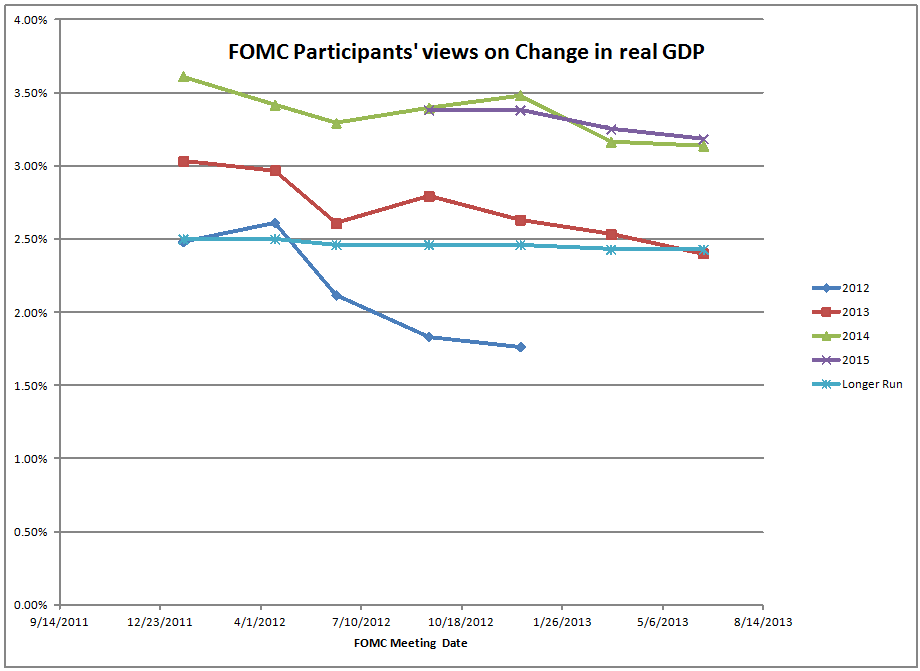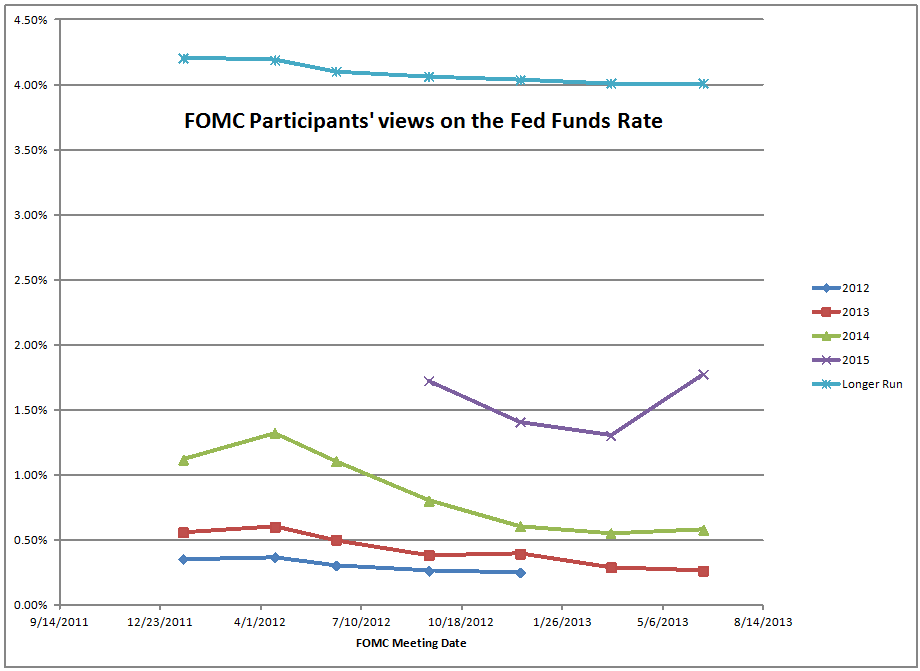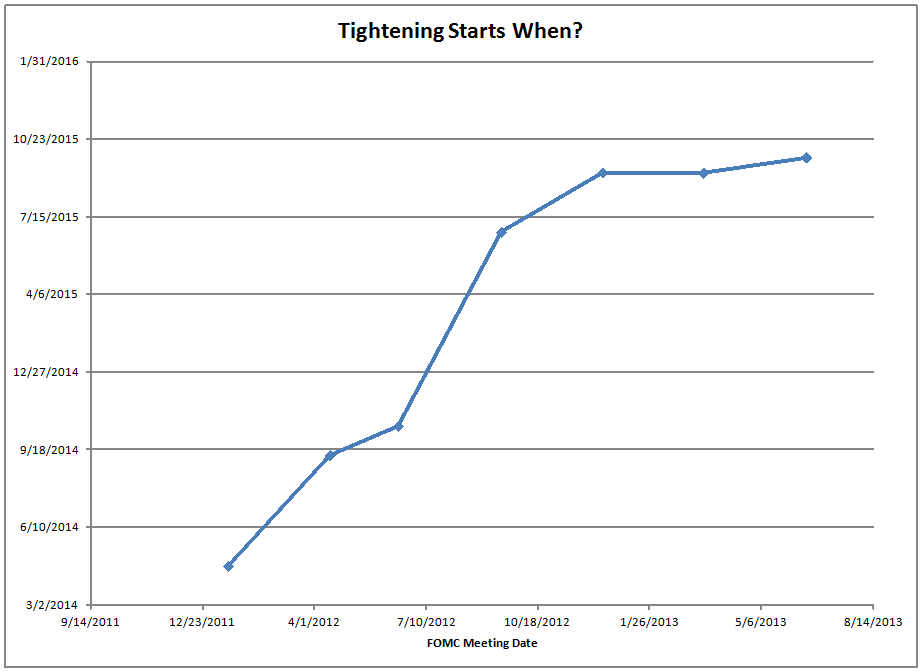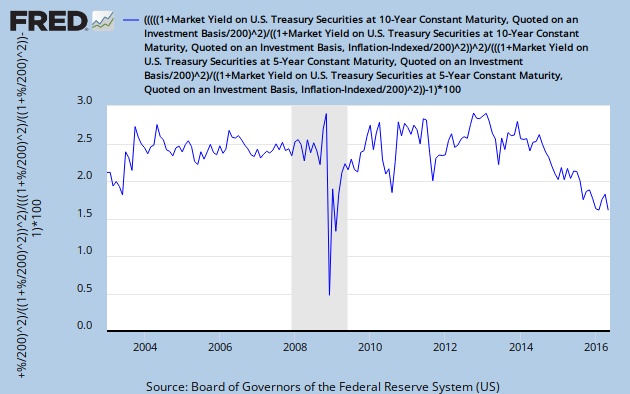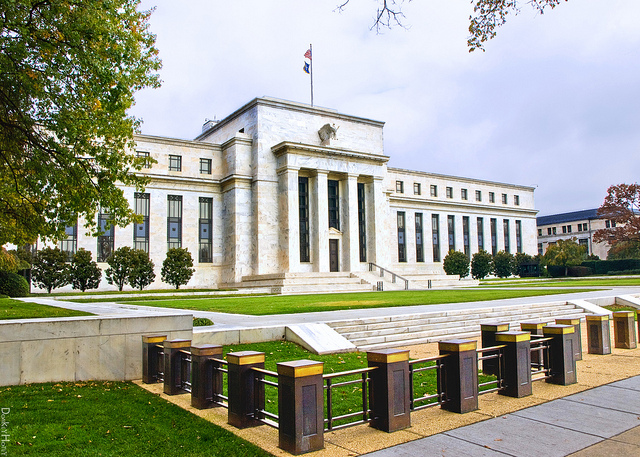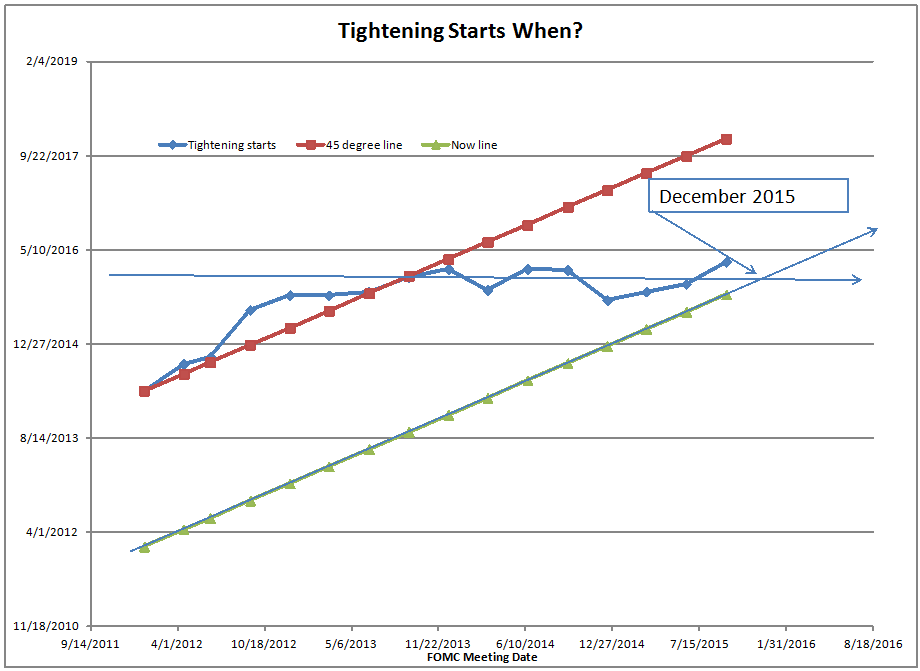Silence is Golden, Fiat Money is Noisy
I’m not a fan of the enhanced communications of the Federal Reserve.? In general, I think central banks should say nothing.? Nothing.? Just do your work through fed funds, and make sure you squeeze out bad debts before you stop tightening.? That was the way Martin and Volcker did it, arguably the best men ever to have been Fed Chairman.
The idea that more transparency is needed stems from the wrongheaded idea that giving people more data will make them do what the Fed wants.? Rather, they will more quickly react to the hints of policy change.? If you are a smart central banker, you should want people/firms to be confused.? Confusion is helpful because when people finally figure out what is going on, they react with more punch.
I am amazed that economists imagine things, and then they expect the world to act ideally, rather than the messy way that it normally does.? It is worse that we let them control policy with their bankrupt theories that may bankrupt many.
So to the Fed, I say “Be quiet.? Act in silence and your powers will be enhanced.”
But now, what of the Fed’s enhanced communications?? Let’s look at their expectations of GDP:
In general, FOMC participants have been optimists.? That is what they are paid to do.? GDP has consistently been lower than what they predicted.? They give us the “smiley face,” and then explain disappointment quarter after quarter.
Again, optimism is the operative word, that is what they are paid to do — be optimistic shills for the US Government.? In this case, they have been more accurate, as the unemployment rate has come down.? Please ignore the discouraged workers, and all of the new people on disability.? I’m sure that last four years have injured far more people than the four years prior, not.
This graph is different.? Because we are listening to FOMC participants, we must get a dose of their religion.? Long-run future PCE Inflation will be 2%, they guarantee it.? But in the present, their expectations for inflation keep falling.? We are in a deflationary world where labor has no ability to improve wages, and thus stimulate inflation.
Regarding predictions of the Fed funds rate, for the most part expectations for the rate have declined for 2012-2014.? Only today has 2015 expectations expanded, as the Fed hints at the end of QE.? As I have said before, at inflection points, markets often react in a wild fashion, because the received wisdom gets called into question.
When the Fed started their enhanced communications, they had no dream that they would be trapped in easing for so long.? As it is, it is only over the last half year that expectations for when policy would tighten have coalesced at September 2015.? I don’t know if that is the right time or not, but it is interesting to see the views of the FOMC converge here.
The last two graphs reinforce each other as they indicate tightening two years from now.? But if the tightening is two years away, why did the market react so badly?? Markets are discounting mechanisms, and react to expected future changes, not the mistaken view of Bernanke that stocks of debt still affect the markets.? No, it is changes in the stock of debt, and changes in the expected changes in the stock of debt that affect the markets.
Please be aware that the the Fed is not working off of established theory here, but only presumption.? They are imitating the failed policies of Japan, because the theories tell them it will work.? With economics, theories have a bad track record.? Maybe they should get out of the prediction business, and in the process, replace the Fed with a currency board based on gold, commodities, or limited fiat money that does not let the yield curve gat too steep or too flat/inverted.


